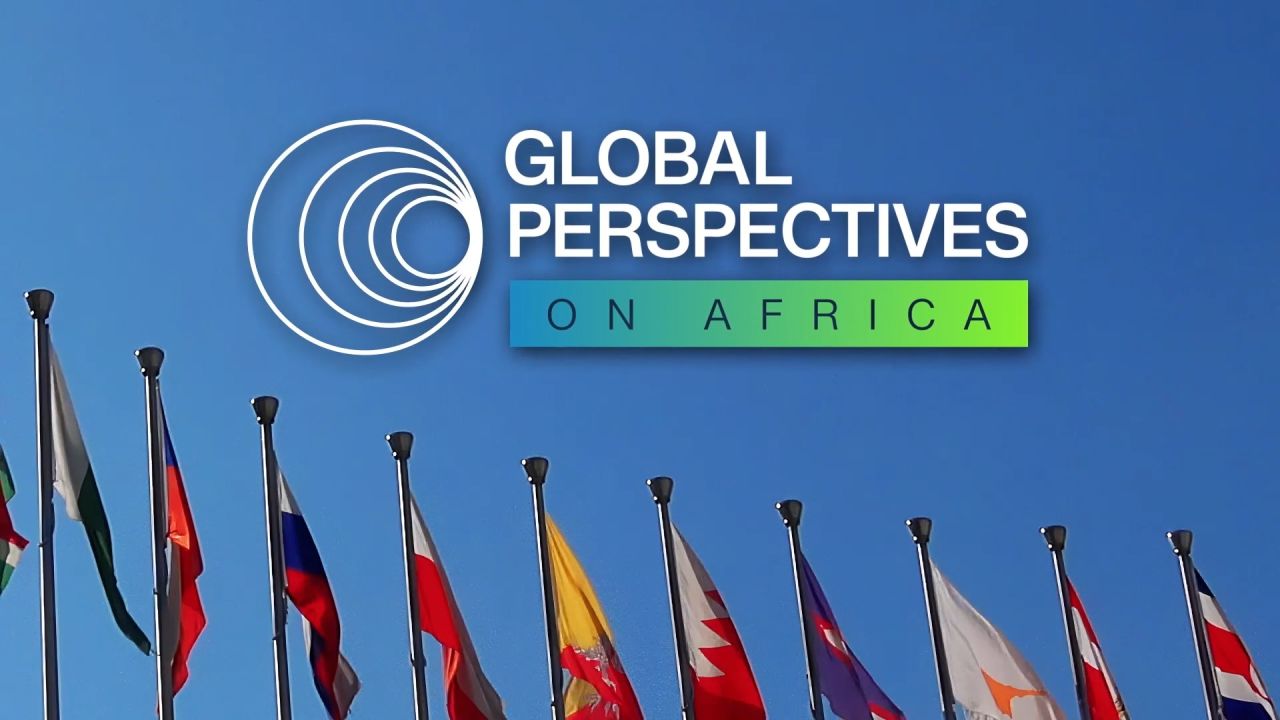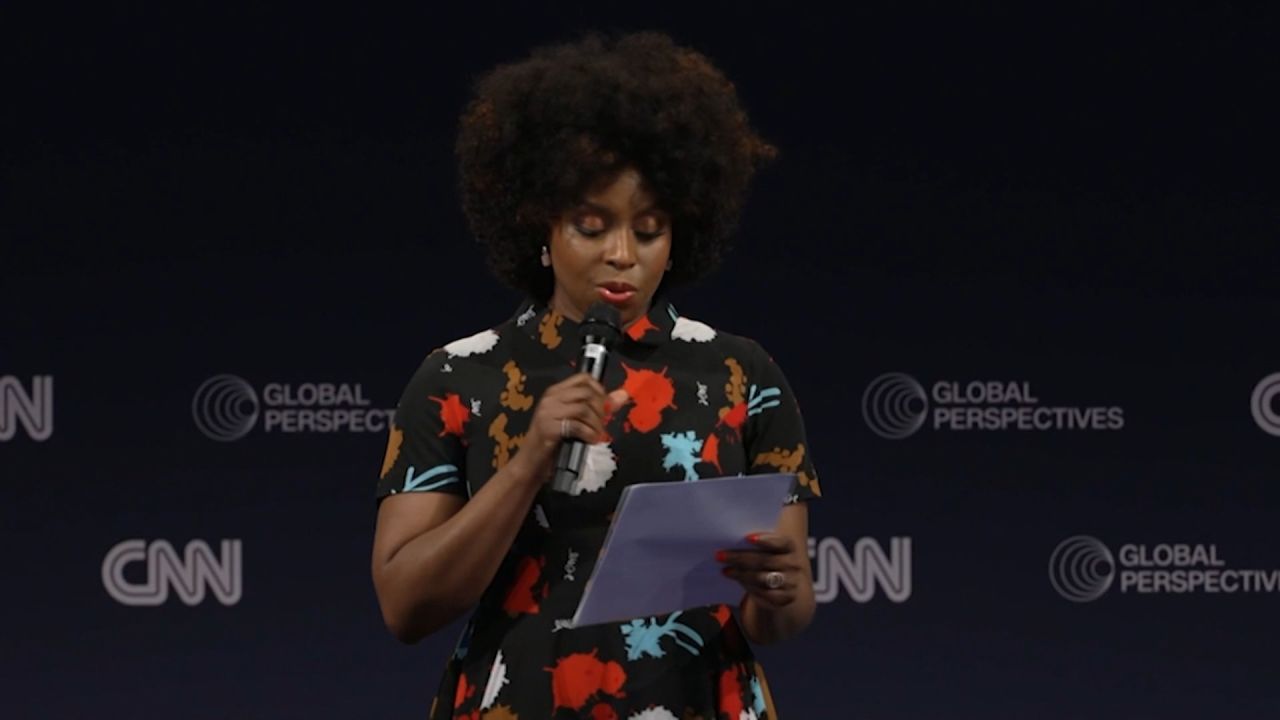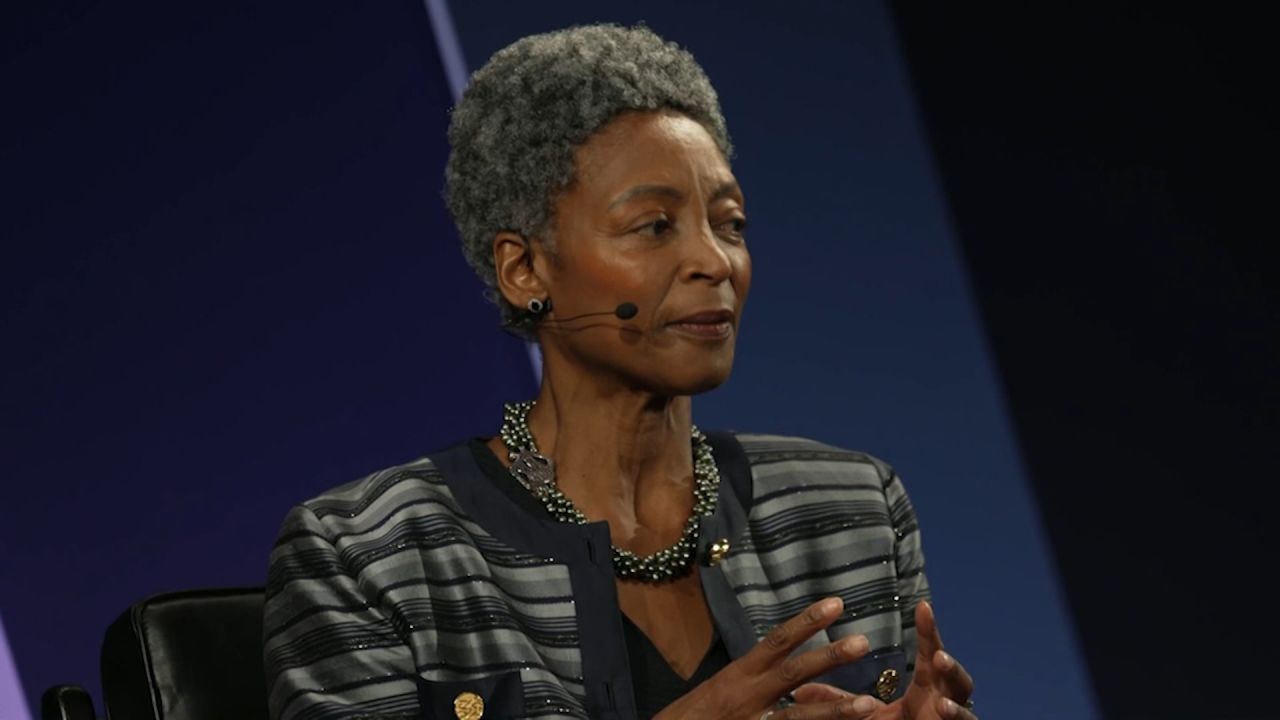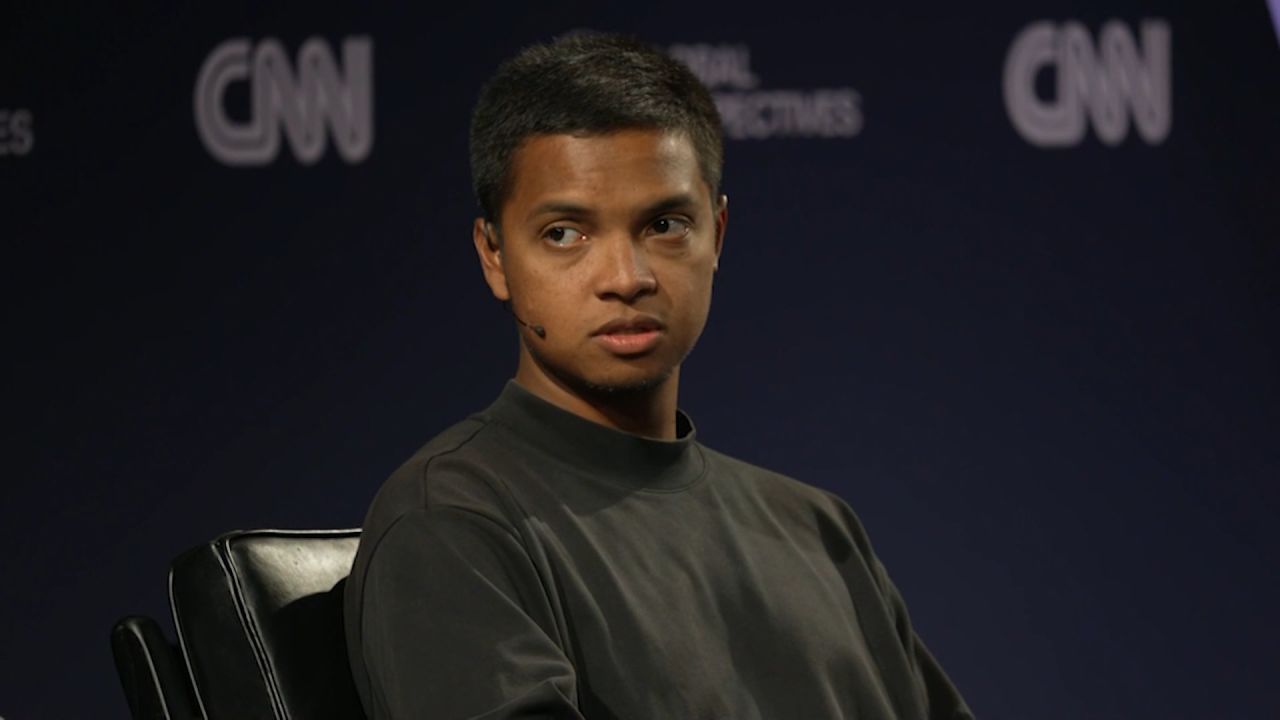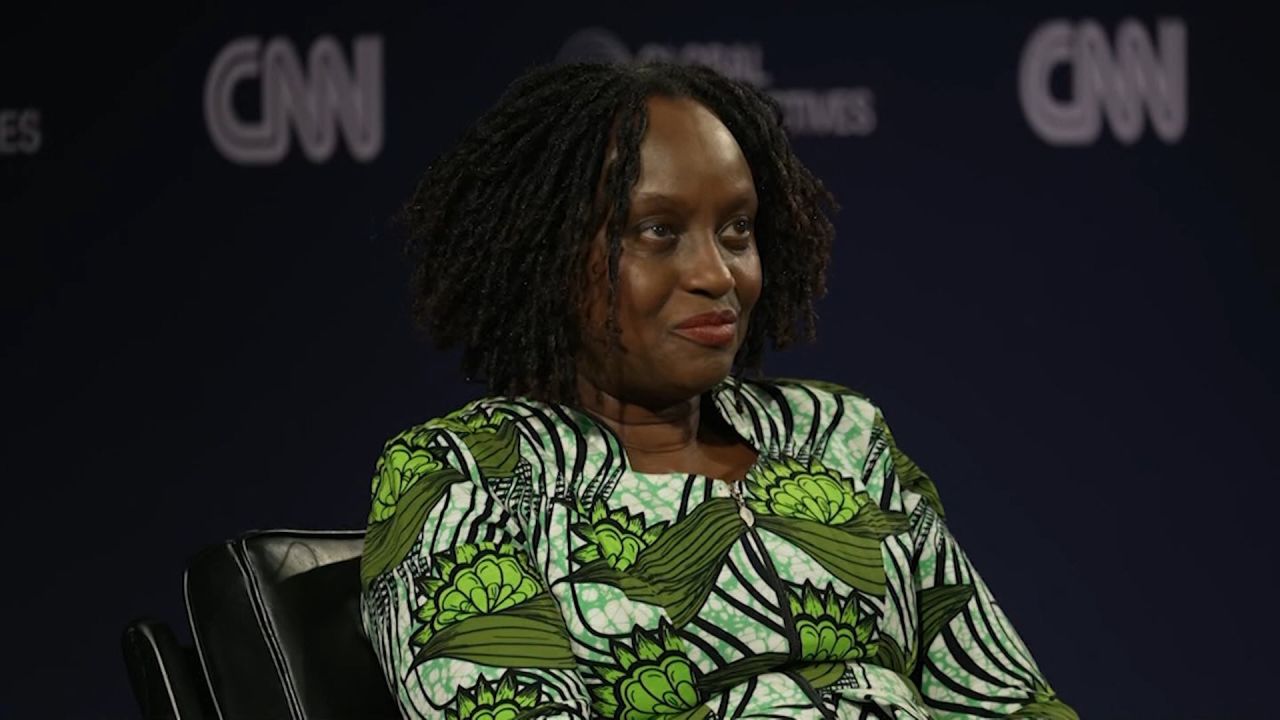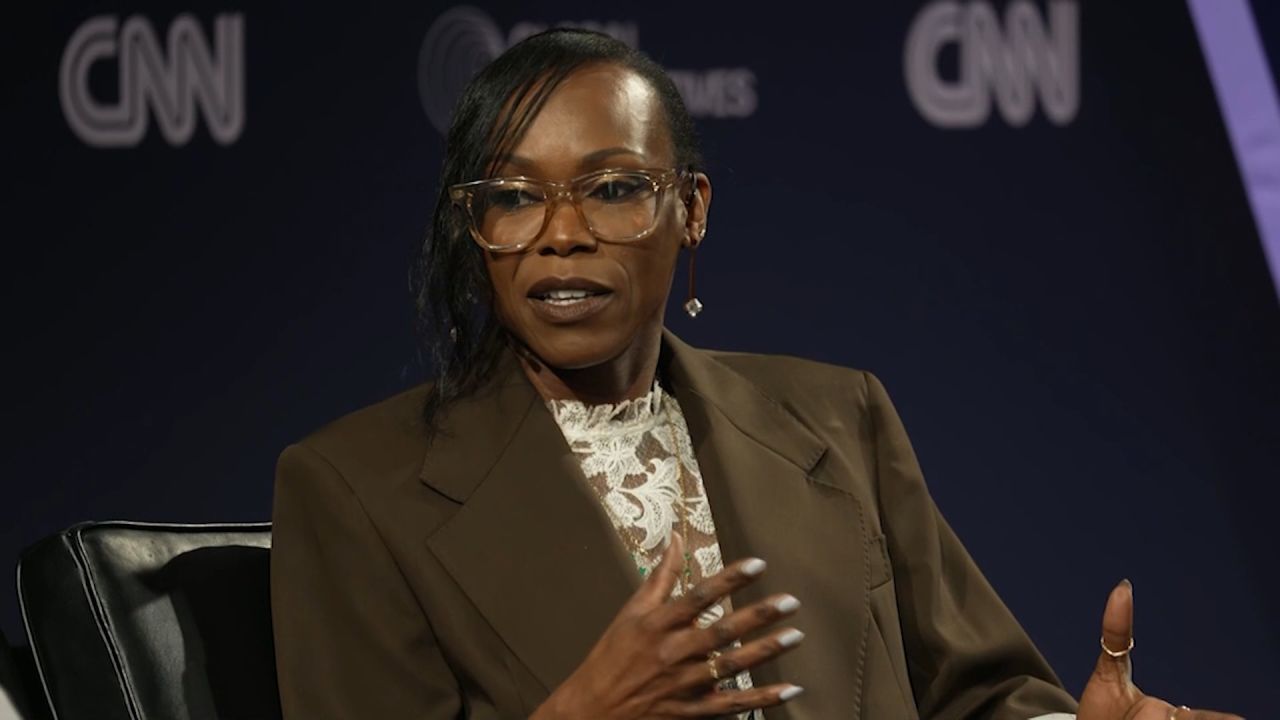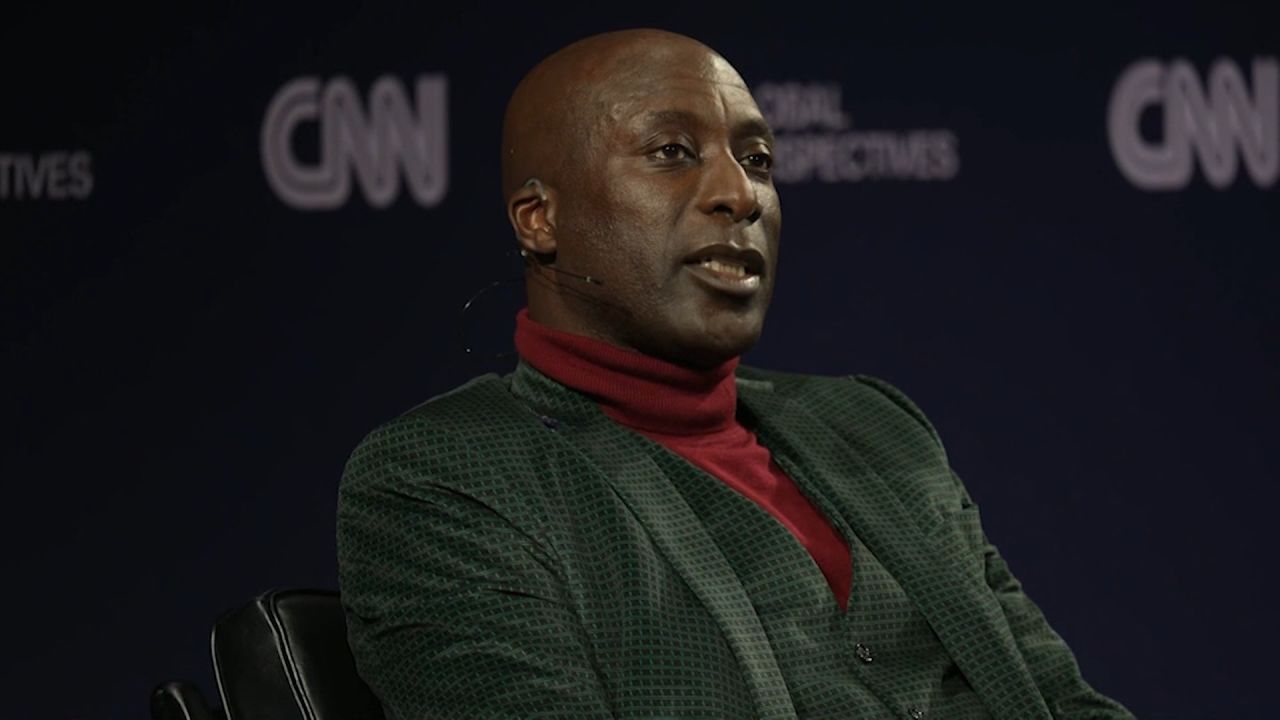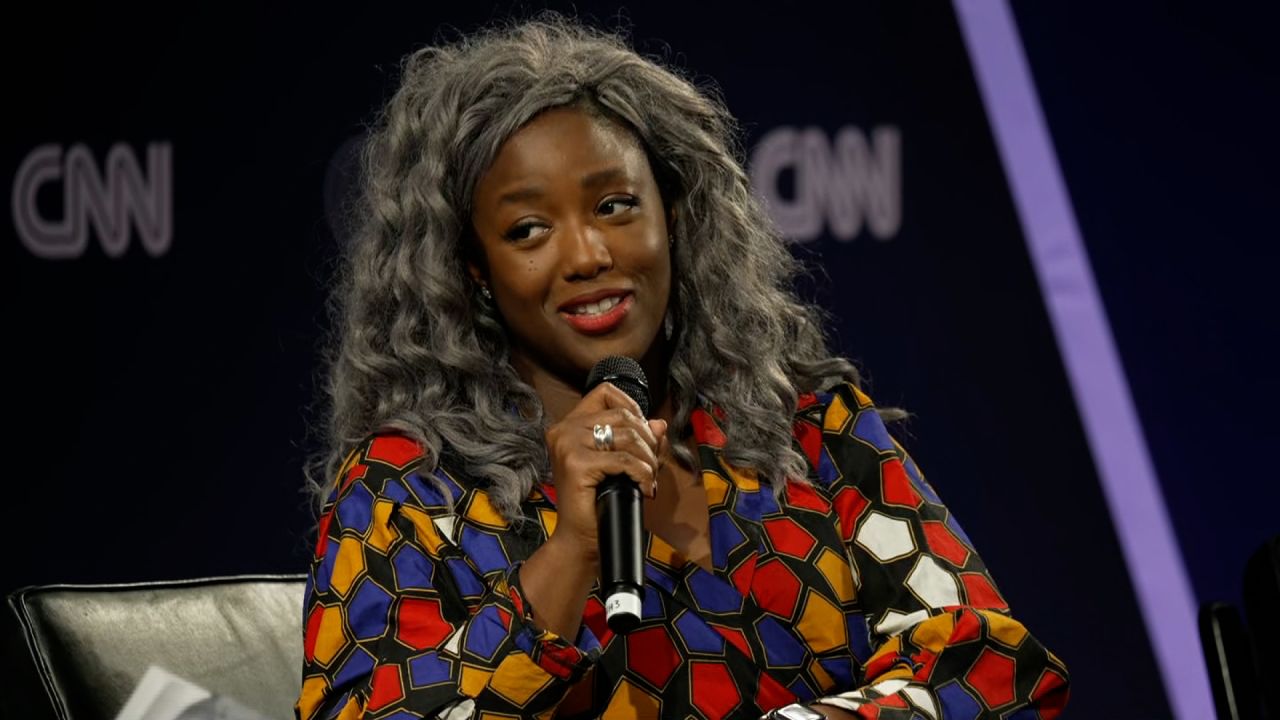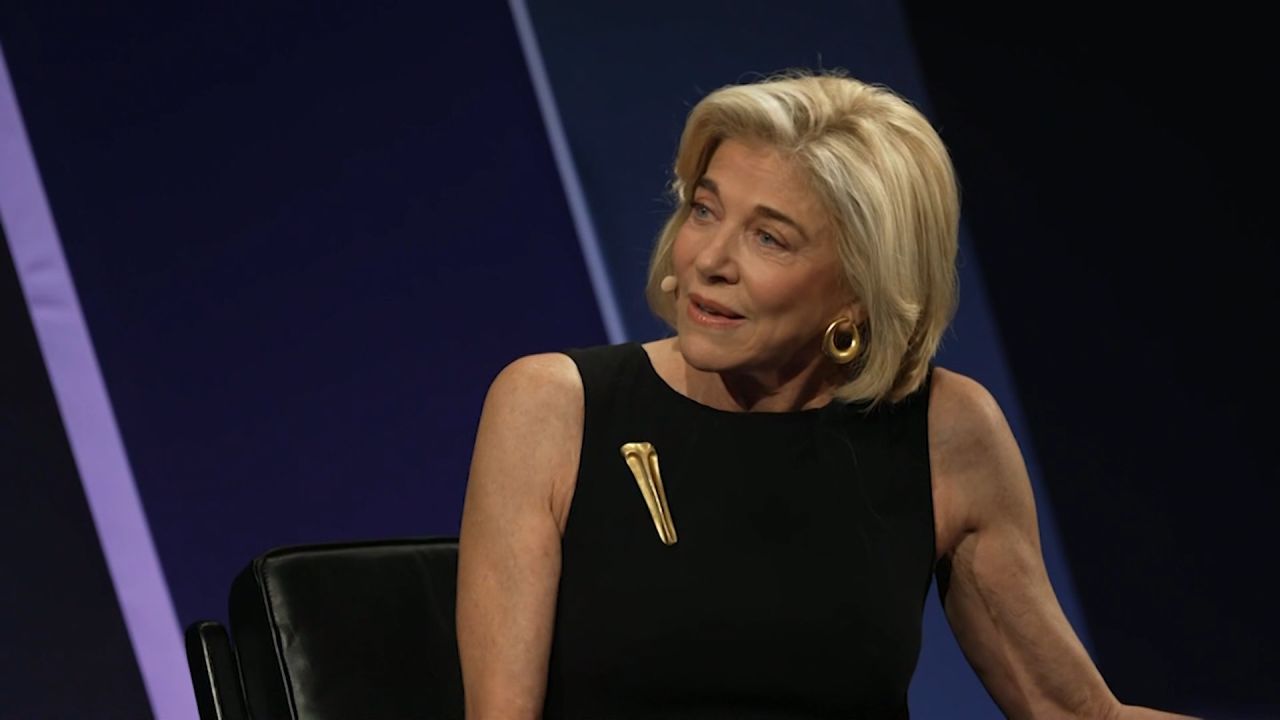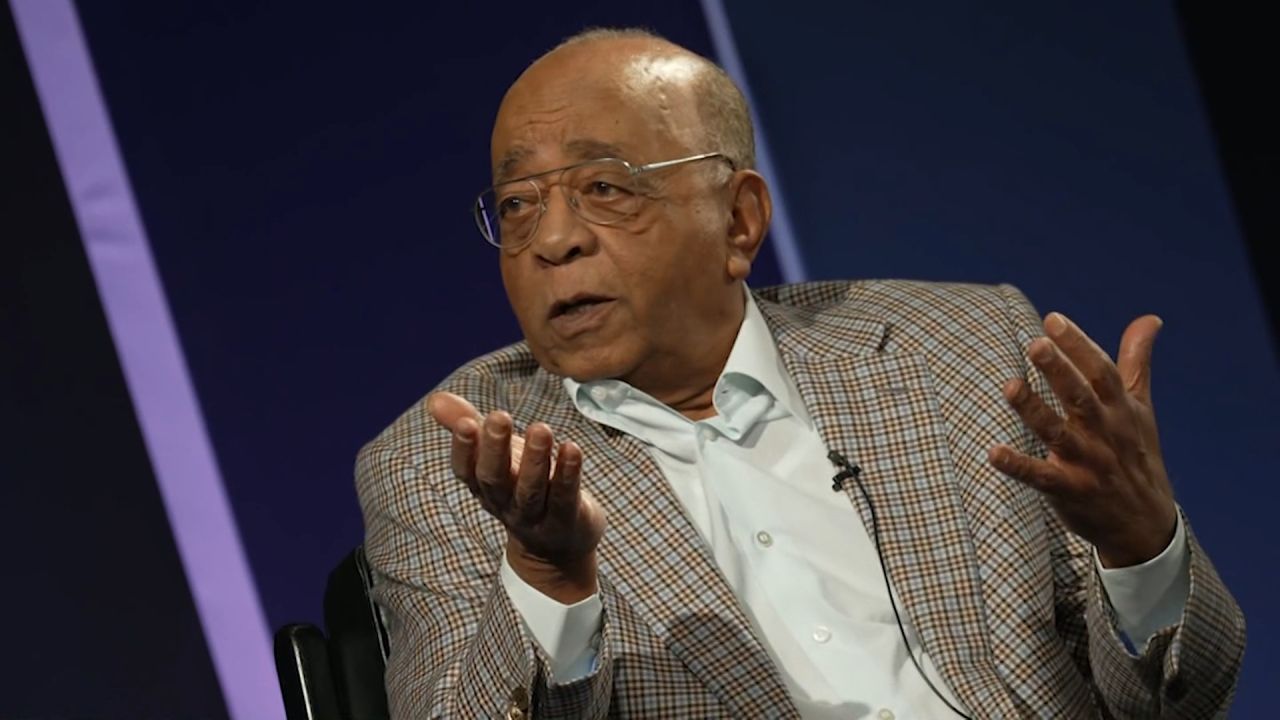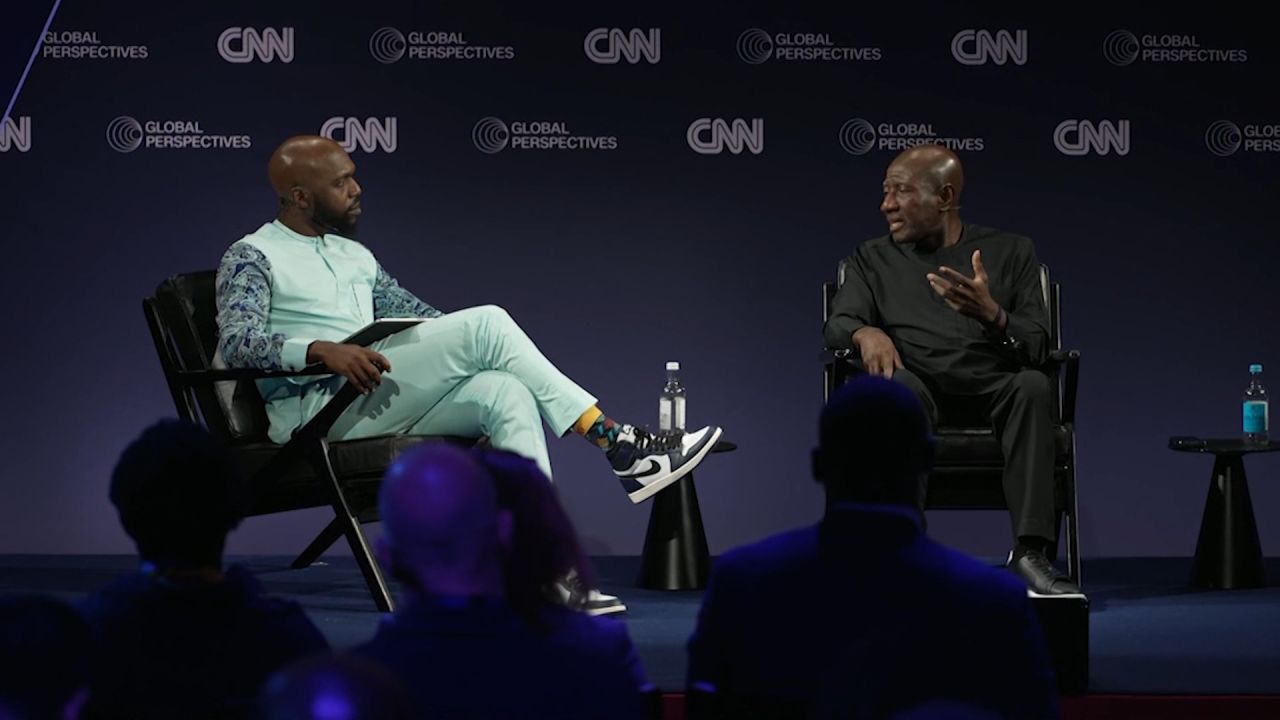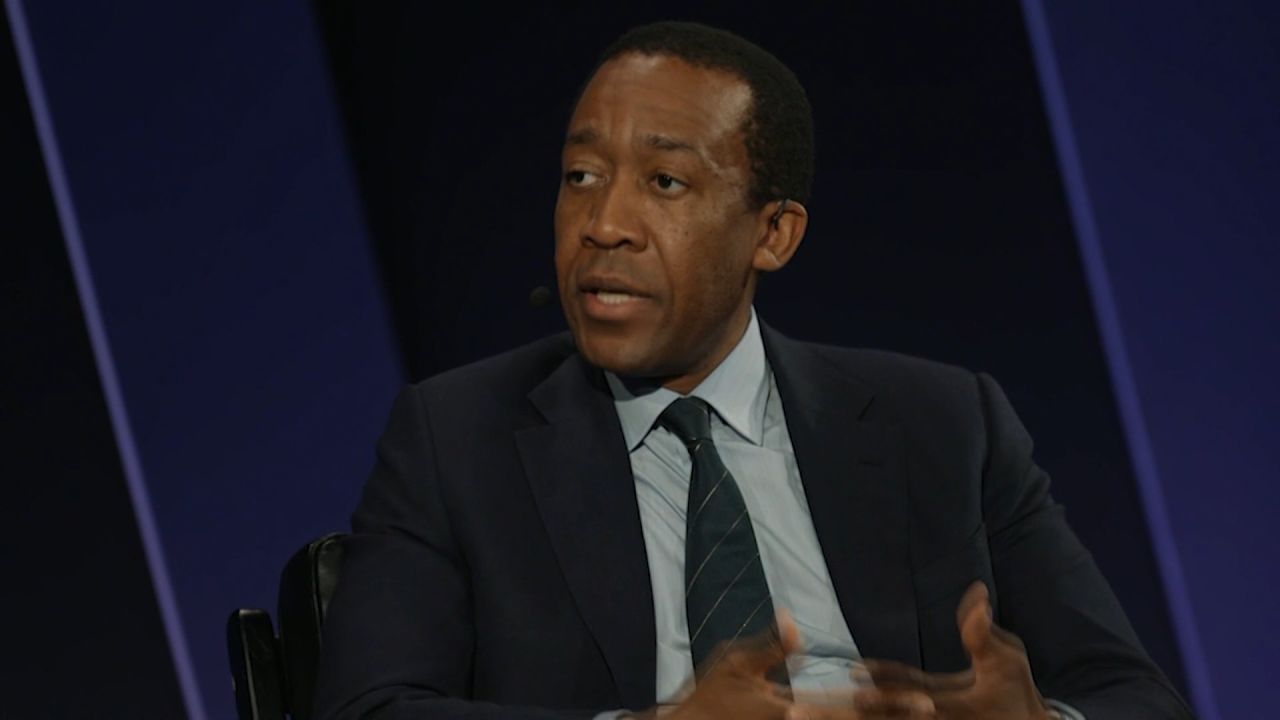What we covered here
• Top entrepreneurs, creatives and thought leaders from the worlds of politics, economics and fashion gathered in London on November 3 for CNN International’s first Global Perspectives live event, focused on Africa.
• The summit featured in-depth conversations and live interviews exploring innovation and sustainable growth, led by CNN journalists.
• We heard from WTO director general Dr. Ngozi Okonjo-Iweala, who called for “careful thinking” on tensions in Nigeria, after US President Donald Trump suggested the US may take military action there to protect the nation’s Christians.
• The prime minister of the Democratic Republic of the Congo, Judith Suminwa Tuluka, also called on Rwanda to “accept a ceasefire” between the two countries.
• And to round off the day, award-winning Nigerian author Chimamanda Ngozi Adichie spoke on the importance of centering African perspectives in her storytelling.
And that's a wrap...
CNN’s Eleni Giokos and Jim Sciutto take to the stage to close what has been a busy and insightful day here in London.
We’ve seen how the Africa is redefining global leadership — from finance and technology to luxury, culture, tourism, and sustainability. The continent is not just part of the global conversation; it’s helping to lead it.
Chimamanda Ngozi Adichie on the intimacy of storytelling, and centering African narratives

The final conversation of the day saw Chimamanda Ngozi Adichie speak with CNN’s Zain Asher about the power of stories.
In her work, Adichie celebrates the plurality of culture, identity, and perspective. Now, the acclaimed author of “Purple Hibiscus,” “Americanah” and “Half of a Yellow Sun” is calling on a new generation of writers to foreground their stories.
“I grew up reading books and being very curious about the world – but also knowing very clearly who I was,” the author said. “I think that there’s something about that kind of rootedness that makes you assume your central place in the world.”
“Our storytelling needs to be more culturally confident. We have to assume that we are at the center,” she added.
Chimamanda Ngozi Adichie: “To be a human being is to be part of a project of plurality”
Celebrated Nigerian author Chimamanda Ngozi Adichie gives a wonderful reading about the power of literature.
“Reading literature – above all else – reminds us over and over again that there are multiple points of view. A reminder that is needed now, in today’s world, more than ever. That to be a human being, is to be part of a project of plurality.”
Tenacity, discipline and hard work

The Emmy-award winning actress Uzo Aduba says she remembers the best advice she ever received when she started her career – and it came from her mother.
“I would say foundationally, a lot of my art comes from my background which is my Nigerian heritage,” the “Orange is The New Black” star told CNN’s Zain Asher.
“My mother, when I first moved to New York gave me the best advice of my life … Knowing that what I was about to approach was going to be the hardest thing I ever did in my life, she said, ‘Uzo – just work hard!’”
“The spirit of that tenacity, the spirit of that discipline, the spirit of that vision, and understanding the full connection cellularly that it would require for me to get to where I wanted to is what I bring to my work – and that is uniquely African.”
Africa’s “biggest resource jewel” is its people. But they need investment
Masai Ujiri, co-founder of Zaria Group and Giants of Africa, believes the untapped human potential across sport, entertainment and the arts is the continent’s “biggest resource.”
“We have to teach, we have to educate that sports infrastructure, entertainment infrastructure is infrastructure. We have to see sports as a business,” Ujiri told CNN’s Eleni Giokos.
“Africa’s biggest resource jewel, the biggest thing we have, is its people. We are so talented, it’s crazy,” he added. “Pilots, chefs, artists, basketball players, soccer (players), accountants, everything you can think of — we are truly the most talented continent in the world.
“There’s a huge opportunity. But we (don’t) have the infrastructure to do this. We need to build. We need to see it. Our youth is fast-growing. We need jobs.”
Building infrastructure that “connects Africa to itself"
Nonkululeko Nyembezi, the chairperson of Standard Bank Group and co-chair of B20, a forum for the global business community, told CNN’s Richard Quest that infrastructure is key to growing intra-Africa trade across the continent.
“What this next phase is now calling us to do, in order to make the African Continental Free Trade Area a live project, is to start building infrastructure that connects Africa to itself. If we are ever going to get intra-Africa trade to happen, the infrastructure planning and the infrastructure development needs to change.”
“The hard work is beginning”
The spokesperson for Madagascar’s Gen Z-led protest movement that helped overthrow the government last month says “the hard work is beginning,” as the military takes control of the island nation.
Elliot Randriamandrato admits that protesters did not expect the military to seize control of the country following the wave of demonstrations against the cost of living and public services in Madagascar.
“We have to have a close relationship with the new regime,” he told CNN’s Eleni Giokos, during a discussion on Africa’s next generation of leaders.
Why tourism is a “necessary evil” for gorilla conservation
The relationship between tourism and conservation has always been difficult in Africa; the tourism industry provides jobs, but some argue that it can have a negative impact on local biodiversity.
But conservationist Dr. Gladys Kalema-Zikusoka says tourists could be a “necessary evil” for environmental protection.
“I saw the positive impact of tourism, which was very important for me as a vet student, as a scientist,” she told CNN’s Larry Madowo. “Tourism can really help to sustain conservation.”
In the late 90s, Kalema-Zikusoka set up the first veterinary unit at the Uganda Wildlife Authority, before undertaking a zoological medical residency and masters in specialized veterinary medicine at North Carolina State University and North Carolina Zoological Park.
“Humans have disturbed the wildlife so much,” she said. “I found out that the gorillas’ habitat was really encroached.”
Now, conservationists have found a “happy medium” between enabling conservation efforts, engaging with local communities and boosting the overall economy, added Kalema-Zikusoka.
“There are four subspecies of gorillas in the wild,” she explained, “but the only subspecies that is growing steadily in number is the one where there’s tourism, which is the mountain gorillas. So, tourism is helping. Maybe it’s a necessary evil.”
More from Global Perspectives: “The future of luxury has to be about creation”
After speaking with Ozwald Boateng, Eva Omaghomi, founder of consultancy firm Forster Jones & Associates, hosted a panel on how Africa can reclaim global luxury.
Thelma West, founder of Thelma West Diamonds, told Omaghomi that: “When people picture African luxury, they usually imagine raw materials — so it’s the gold, diamonds, fabric — it’s rarely the soul behind it: the imagination, the innovation.
“We need to move from a continent that supplies the world with its finest materials to one that actually creates beauty and puts it out in the world as a finished product.
“We have the materials – we just need to create,” she added. “The future of luxury cannot simply be about extraction — it has to be about creation.”
Ozwald Boateng on how to create cultural impact
Fashion designer Ozwald Boateng told Eva Omaghomi, founder of Forster Jones & Associates, that when he started out in the early 1980s in London, race was a barrier to entry, and he had learned through his childhood that he had to fight for his voice to be heard.
“So, when I realized I had a talent for designing clothes, I very quickly went, ‘How do I use my creativity to make a bigger point?’”
When he was 18, he visited Savile Row, a London street known for its bespoke men’s tailoring, and saw an opportunity: “The street was a bastion of British tradition, but it was dying. It needed a revitalization to a new audience. I recognized that I could do that.”
In 1995, Boateng opened his first retail store, in Savile Row, achieving two goals: firstly “a cultural point, from my own heritage — and I was saving something that was very important to be British.”
Fast-forward to this year, and Boateng’s shimmering designs for the Met Gala in New York — themed “Superfine: Tailoring Black Style” — cemented his lasting style legacy.
The STEM industry benefits when women and non-binary people are included, summit told
Dr. Anne-Marie Imafidon MBE, CEO and co-founder Stemettes, which promotes the inclusion of women and non-binary people in STEM industries (Science, Technology, Engineering and Mathematics), took to the stage alongside CNN’s Zain Asher.
“We’re in the middle of a fourth industrial revolution,” says Imafidon, with so much exciting “untapped potential.” But more people need to be in the conversation and listened to, she adds.
She gave the example of company launching a health tech wearable that tracked women’s periods… on a 10-day cycle, to highlight a lack of inclusivity behind the scenes.
“It’s about saying there’s a whole population that’s not represented in the way we built this technology,” Imafidon said.
Gender inclusivity goes hand in hand with geography too, she said, adding, while referring to the continent: “Can you build something globally if it doesn’t work for 54 countries?”
“They’re going to be your customers, they should be your innovators.”
Leading fintech figures on prioritizing a pan-African market

A crop of African-founded financial technology (fintech) start-ups has risen over the past decade.
Here, four leading industry figures told CNN’s Richard Quest the key to unlocking a sustainable ecosystem for budding entrepreneurs lies in: Addressing funding gaps and skills shortages, improving intra-continental cohesion, and creating a fluid regulatory system to match an ever-evolving market.
De Rothschild says “the 1% will be taken down” if capitalism fails to work for everyone
Next up, as part of “Africapitalism” and a New Era of Inclusive Finance, we’re discussing “inclusive capitalism” – a term Lady Lynn Forester de Rothschild, conceded is “an oxymoron to most people today.”
De Rothschild, founder and CEO of the Council for Inclusive Capitalism, referred to warnings that disillusionment with capitalism is high among many demographics, including Gen Z. Reforms are needed, she argued, “because if capitalism doesn’t work for everyone, the system of capitalism is going to go away.”
What does this mean for the continent?
“Africa,” de Rothschild said, “is a place that could test the contest between capitalism and socialism.”
Fellow panelist Tony O. Elumelu, group chair of Heirs Holdings and founder of the Tony Elumelu Foundation, said companies need both profit and purpose.
Elumelu coined the term “Africapitalism” to describe a combination of economic and social investment on the continent. His foundation identifies and invests in 3,000-5,000 young African entrepreneurs annually, he said.
“It’s not about charity,” Elumelu added. “It’s about value creation … and making sure businesses don’t do business for profit alone.”

Grammy-nominated artist Somi on how being the “child of immigrants” informs her music

In 2021, Laura Kabasomi Kakoma became the first African woman nominated in any of the Grammy jazz categories. Four years later, the vocalist, composer, writer, and performer – known as Somi – has played a part in the emergence of African music on the global stage.
“It’s been so wonderful to see how that music is traveling around the planet,” she told CNN’s Larry Madowo. “I think people are starting to look at African artists in a different way. Really be able to see us, really be able to think about: What does it mean to be a part of a contemporary moment in culture?
“I’m grateful for the extended visibility that those artists grant to so many others,” she said.
In recent years, some musicians have pushed for global recognition beyond the confines of the “Afrobeats” genre. In 2024, the Grammys added a new category – Best African Music Performance – to capture the multiplicity of sounds across a continent of 54 nations. However, Somi believes there is more work to be done. “I still think there’s an opportunity to push against the monolith of African music,” she said.
Born in Illinois to parents from Rwanda and Uganda, the vocalist is inspired by “being a child of immigrants.”
“That’s something that’s always raised, this question of home,” said Somi. “We always talk so much about telling our stories. What does it mean to be a witness – not only of the music that’s happening in the moment, but how do you witness the ordinary lives of African people in the world? Whether they’re on the continent, or in the diaspora.”
Breaking for lunch ...
The event has paused for lunch here at The Chancery Rosewood hotel. We’ll be back with you soon.
US "looks like an African country" says Dr. Mo Ibrahim
During a lively panel here alongside Sanda Ojiambo, CEO and executive director, United Nations Global Compact and hosted by CNNs Jim Scuitto, Mo Ibrahim Foundation founder and chair Dr. Mo Ibrahim describes the new world disorder as a “wake up call.”
Ibrahim bemoaned the inertia of the UN Security Council, the disempowerment of the United Nations and other institutions, and poked fun at the US.
“Without peace you cannot have development,” Ibrahim added regarding the African continent, saying that conflict has never delivered for its people.
The latest from Global Perspectives on Africa: Partnerships and young people are key to digital growth
In a region where internet use has skyrocketed over the past decade, Africa’s largest internet provider is dedicated to involving Gen Z in digital transformation, according to Ebenezer Asante, the senior vice president of markets for MTN Group.
Asante told CNN’s Larry Madowo that cross-generational partnership is essential to growth in Africa. “We are getting to a space where, without a partnership, and working together — not only with our competitors, but also with other investors, with government, as well as multilateral agencies and development fund providers — we are simply not going to be able to cover the next one billion people.”
Although internet adoption in Africa has surged in recent years, just 38% of the population uses the internet, according to the International Telecommunication Union — far below the global average of 68%.
Providers must collaborate with policymakers and regulators to reduce the cost of the internet and the cost of deployment, added Asante, and invest in younger generations. “We require smarter regulations, working with government, working with regulators. We’re required to bring the cost of deployment way lower than where it is today,” he said.
Africa's imported food crops the "elephant in the room"

“Why can’t Africa feed itself when we have all this arable land?” Larry Madowo asks Dr. Florence Wambugu, CEO of Africa Harvest, Dr. Ismahane Elouafi, executive managing director of CGIAR and Sunny Verghese, co-founder and group CEO, Olam Group Limited.
Technology adoption and investing in the continent’s hundreds of millions of small-scale farmers is the path forward, argued the panel, speaking during Soil to Scale at CNN’s Global Perspectives.
Elouafi said per hectare, Africa is producing 20-40% the yield of a highly developed nation.
“The green revolution we’ve been talking about for so long has skipped Africa,” she said, adding that the solutions are there to bridge the yield gap relatively quickly.
Maximizing agricultural efficiency on the continent could have wide-ranging impact.
To feed the world’s growing population between now and 2100, Verghese said “593 million hectares” of new agricultural land needs to be found, “equal to twice the size of India,” she added.
Africa, which contains more than 60 percent of the world’s remaining uncultivated land, represents a huge opportunity.
Africa has "actually benefited" from global tariff disruption
Ademola Adesina, the co-founder and president of digital infrastructure provider Sabi, told CNN’s Richard Quest that Africa had in some ways “actually benefitted” from the tariffs imposed earlier this year by the Trump administration — because they have led to a more decentralized mineral supply chain.”
“There’s a requirement that some of these critical minerals come directly from Africa now and not go through the elephant in the room: China,” said Adesina.
“The fact that we’re having to source these critical minerals directly from the African countries will also mean that we need to add value in Africa, and we need to actually process and go up the value chain — in a way that hasn’t been the case in the past,” added Adesina.
Now up: How supply chains drive growth
The CEO of DP World has highlighted how important African routes are to his company, one of the world’s largest logistics firms.
“We are everywhere in the world – the biggest growth we see in business is in Africa,” Ahmed Bin Sulayem told CNN’s Richard Quest. “One port we have in Senegal does more business than all our ports in Europe combined,” he added. “Africa has the highest growth, the population in 15 years will be two billion – they will surpass China, they will surpass India.”


